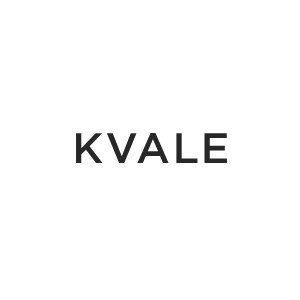Best Funds & Asset Management Lawyers in Norway
Share your needs with us, get contacted by law firms.
Free. Takes 2 min.
Or refine your search by selecting a city:
List of the best lawyers in Norway
About Funds & Asset Management Law in Norway
Funds and asset management law in Norway refers to the regulation of the establishment, operation, and supervision of investment funds and asset management services. Norway's financial sector is robust and highly regulated, balancing investor protection with a dynamic financial services market. The industry comprises various entities such as mutual funds, hedge funds, private equity funds, and alternative investment funds which are managed by licensed fund managers. The Norwegian Financial Supervisory Authority (Finanstilsynet) is the primary regulatory body overseeing these activities to ensure transparency, financial integrity, and the prevention of money laundering and financial crime.
Why You May Need a Lawyer
Engaging a lawyer experienced in funds and asset management can be essential due to the complex regulatory environment and the potential legal and financial risks involved. Common scenarios where legal help may be necessary include:
- Establishing or registering a new investment or asset management company - Obtaining necessary licenses or authorizations from Finanstilsynet - Structuring funds and preparing fund documentation - Compliance with anti-money laundering and reporting requirements - Handling disputes between investors and management companies - Advising on cross-border marketing and distribution of funds - Mergers, acquisitions, or reorganizations of funds - Addressing breaches of regulation or dealing with regulatory investigations - Drafting and negotiating contracts with institutional or retail investors - Navigating taxation and reporting issues related to Norwegian and international regulations
Local Laws Overview
Norwegian funds and asset management laws are shaped by both domestic legislation and European Union (EU) regulations because Norway is a member of the European Economic Area (EEA). Key legislation includes the Norwegian Securities Funds Act (verdipapirfondloven), which implements the UCITS directive, governing mutual funds and retail investment products, and the Alternative Investment Fund Managers Act, which incorporates the EU AIFM Directive and regulates alternative funds such as private equity, hedge funds, and real estate funds.
All fund managers must be authorized by Finanstilsynet and comply with rules on risk management, investor protection, organizational requirements, and transparency. There are strict requirements around fund documentation, disclosure to investors, marketing, and periodic reporting to authorities. Both local and foreign fund managers wishing to market their products in Norway must adhere to notification and registration procedures. Taxation of funds and investors is regulated and may be subject to treaty relief if foreign investors are involved.
Frequently Asked Questions
What is the role of Finanstilsynet in Norway's funds and asset management sector?
Finanstilsynet supervises and regulates fund managers, asset management firms, and investment funds in Norway, ensuring compliance with all legislative requirements, safeguarding investor interests, and maintaining the integrity of the Norwegian financial market.
Do I need authorization to establish a fund in Norway?
Yes. Establishing and operating a fund or asset management firm generally requires prior authorization or registration with Finanstilsynet. The regulatory requirements differ depending on whether you are setting up a UCITS fund or an alternative investment fund.
Can foreign funds be marketed in Norway?
Yes, but there are specific registration and notification procedures that must be followed. Both UCITS and alternative funds managed abroad must comply with Norwegian marketing rules and EEA regulations when offering to Norwegian investors.
What are the main types of investment funds in Norway?
The main types are UCITS funds (suitable for retail investors) and alternative investment funds such as hedge funds, private equity funds, and real estate funds, typically targeting professional or institutional investors.
Are there restrictions on who can invest in Norwegian funds?
Some funds, especially alternative investment funds, are restricted to professional investors. Retail investors typically have access to UCITS funds, which are designed with more extensive investor protection measures.
What legal documents are needed to set up a fund in Norway?
Key documents include the prospectus, articles of association, management agreements, organizational documentation, and compliance policies. These must comply with detailed content requirements under Norwegian and EU law.
What are the anti-money laundering requirements?
Fund managers must follow strict anti-money laundering (AML) and counter-terrorism financing procedures, including client identification, transaction monitoring, and suspicious activity reporting, as prescribed by Norwegian and EU regulations.
How are Norwegian investment funds taxed?
Funds are generally exempt from income tax, but investors may be taxed on distributions and capital gains depending on their residency status and the type of fund. Taxation can be complex and varies for foreign investors, so professional advice is recommended.
Can disputes with fund managers be resolved in Norway?
Yes, disputes can be resolved through negotiation, mediation, or the courts. Some matters may also be addressed by the Norwegian Financial Complaints Board (Finansklagenemnda).
What should I consider when choosing a fund or asset manager in Norway?
Consider the manager's authorization status, regulatory record, fund performance, fees, transparency, and the level of client protection offered. Always ensure the manager is registered with Finanstilsynet.
Additional Resources
- Finanstilsynet (The Financial Supervisory Authority of Norway): The main regulator for funds and asset management. - Finans Norge (Finance Norway): Industry organization representing financial institutions. - Brønnøysund Register Centre: For company and fund registration details. - Norwegian Tax Administration: Information on the taxation of funds and investors. - Finansklagenemnda (The Norwegian Financial Complaints Board): For resolving disputes between investors and financial service providers. - The Association of Norwegian Law Firms: Directory of law firms specializing in financial law.
Next Steps
If you require legal assistance in the funds and asset management field in Norway, consider the following steps:
1. Define the nature of your legal issue or objective, such as setting up a new fund, ensuring compliance, or resolving a dispute. 2. Collect all relevant documentation and information about your investments or business. 3. Seek recommendations or consult industry directories to find law firms or lawyers with expertise in funds and asset management law. 4. Schedule a consultation to discuss your situation and obtain preliminary legal advice. 5. Ensure that any lawyer or advisor you choose is authorized and experienced in Norwegian financial law. 6. Stay informed about your rights and obligations, and maintain ongoing communication with regulators and professionals as required. By following these steps, you can protect your interests and navigate the Norwegian funds and asset management sector with confidence.
Lawzana helps you find the best lawyers and law firms in Norway through a curated and pre-screened list of qualified legal professionals. Our platform offers rankings and detailed profiles of attorneys and law firms, allowing you to compare based on practice areas, including Funds & Asset Management, experience, and client feedback.
Each profile includes a description of the firm's areas of practice, client reviews, team members and partners, year of establishment, spoken languages, office locations, contact information, social media presence, and any published articles or resources. Most firms on our platform speak English and are experienced in both local and international legal matters.
Get a quote from top-rated law firms in Norway — quickly, securely, and without unnecessary hassle.
Disclaimer:
The information provided on this page is for general informational purposes only and does not constitute legal advice. While we strive to ensure the accuracy and relevance of the content, legal information may change over time, and interpretations of the law can vary. You should always consult with a qualified legal professional for advice specific to your situation.
We disclaim all liability for actions taken or not taken based on the content of this page. If you believe any information is incorrect or outdated, please contact us, and we will review and update it where appropriate.
Browse funds & asset management law firms by city in Norway
Refine your search by selecting a city.
















